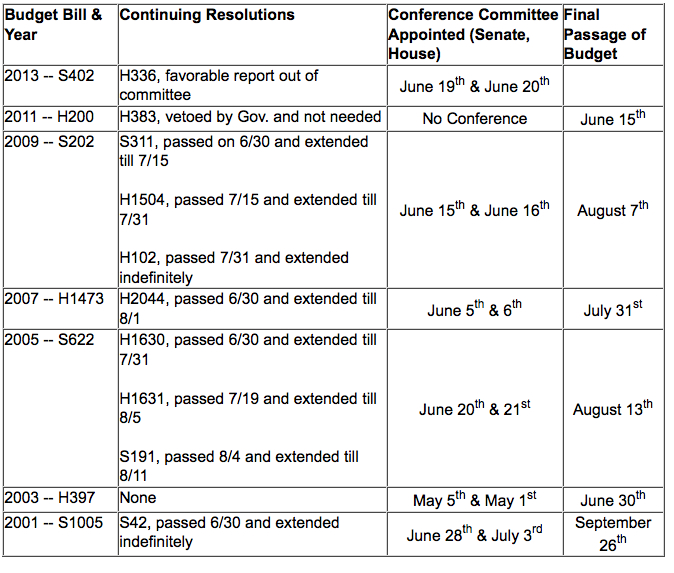For the first time since Republicans took over the North Carolina General Assembly in 2011, they are not finishing a budget plan before the start of the new budget year. The House and Senate have agreed to a temporary measure that will keep state government operating for another month while budget negotiations continue.
I would like to discuss more of the politics of the budget process and what that means for spending measures.
North Carolina operates on a fiscal year beginning July 1 and ending June 30 of the following calendar year. If the legislature does not come to an agreement by June 30, a temporary spending measure will be enacted to fund state operations until negotiations are completed. This is formally known as a continuing resolution. By definition, it is a type of appropriation legislation used by the government to fund agencies if a formal budget bill has not been signed into law by the end of the state’s fiscal year. Since 2000, only two budgets have been signed into law before the June 30 deadline, one of those being signed before the deadline, the other being signed on the final day of the expiring budget.
The obvious reason for budget negotiations to be extended past the June 30 deadline this year is tax reform. Another reason, though, is that a deal doesn’t have to be decided by the June 30 deadline. More budgets than not in recent memory have been passed after the deadline with the accompaniment of at least one continuing resolution.
Unlike most other states and our neighbors, North Carolina has no formal limit on the length of legislative sessions. In theory, there is some political pressure to wrap things up and for legislators to go home, but, in practice, few voters pay attention to Raleigh politics in the middle of the summer. Here’s an interesting coincidence: Most budgets in recent years have been passed around the beginning of the school year.
The continuing resolution (PDF) introduced this week in the Senate Appropriations/Base Budget Committee continued state funding at 95 percent of 2012-13 funding levels until July 31 or until a final budget wins approval. A full outline and explanation of the continuing resolution can be found here (PDF).

Regardless of the reasons why negotiations are extended, this is not the way a responsible government should operate. There should be a hard and fixed deadline for the legislative session to end. In Gov. Pat McCrory’s budget (PDF), a price tag for one week of the legislative session is set at $123,760. The longer the tax reform and budget negotiations lengthen the legislative session, the more tax dollars are spent paying politicians in Raleigh. They get paid more the longer they procrastinate, and that practice needs to come to a screeching halt.
If McCrory is correct in his estimate of the cost of session for one week, citizens already have spent more than $2.6 million this year.
Sarah Curry is Director of Fiscal Policy Studies for the John Locke Foundation.